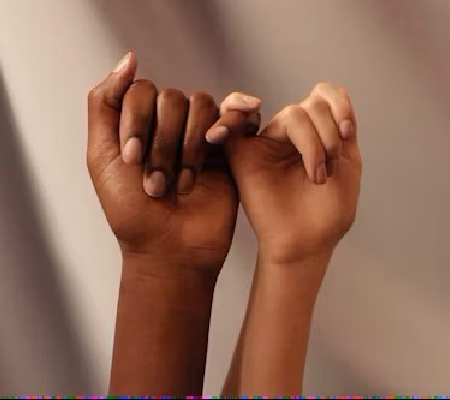What’s being said between these two women?

In my book Conversations with Remarkable Women, I have conversations with twenty extraordinary women who are no longer living. Yet time has no power over my imagination, and the Conversations are fun to write and, for many readers, interesting to read. I confess that some of the responses of those participating in a conversation surprise me. Here’s a taste of the approach.
Émilie du Châtelet, the first physicist, was born in 1706, and Ada Lovelace, the first computer programmer, was born in 1815. In this conversation, they come together from entirely different eras. What do they have to say to each other?
We’re inside a library that’s so large as to appear infinitesimal. Books line the walls, filling shelves that get ever taller, and there are so many books it’s as if they go on forever. The bookshelves are packed with every possible book, supplying wisdom from all ages and many places.
Dressed in an 18th-century gown, with blue ink-stained fingers over a bunch of equations, emerges one of history’s early physicists, the celebrated Emilie du Châtelet herself. Nearby, Victorian Ada Lovelace, in a slightly frumpish dress, sketches an elaborate on-paper mechanical diagram. The two women exchange knowing looks — they speak the same tongue.
Du Châtelet begins, “They say mathematics is the language of the universe. But tell me, Ada, do you ever get frustrated by the limits of its symbols? Or do you, too, want to dance with its rhythms beyond what men expect?”
Madame Chatelet, you ask precisely the right questions. Lovelace grins, drumming her pen on the table: “Oh, I dance, but not in the manner my society accepts. Numbers were more than quantities; they are such possibilities to me. Do you I thought of a machine that can think?”
Du Châtelet exclaims, chuckling with glee: “A machine that could think! Dearest Ada, hardly any men can actually think in my day. They scoffed when I wanted to prove Newton’s theories with my calculations. They assumed my birthright and beauty were my sole virtues. Now tell me, Ada, do men your age take you seriously?”
“Serious enough for me, Madam, to be able to work in the shadows, but not serious enough to build with real materials what I dreamed of. The man I work with keeps trying to build what we talk about, but he will never get around to making it happen despite my efforts. It is the poetry in my blood, I suppose, that enables me to transcend mere numbers.”
Ada, I adore your expression: poetry flowing in your blood. That’s how I feel, as with numbers, too. Was your father’s verse an influence, or have you inherited the tendency to defy expectation?”
“Perhaps both, Madam, or maybe poetry and mathematics are the same. Each needs an elegance of form, a logic of structure, an infinite possibility of meaning. You know that of all people.”
Du Châtelet cocks her head playfully: “You’re so completely wrong, Ada. It occurs to me that calculus is some song in my mind and in yours, that music is some formula?”
Laughs: “Now you’re talking my language! What if we worked together, a mathematician of the stars and a dreamer of machines? We would’ve broken the laws of the universe!”
If you liked this imaginary conversation, please tell me. Want to witness another odd couple? How about Virginia Woolf and Maya Angelou? Check out my next blog post to discover what these two very different women say to each other.
Who would you bring together from different eras if you could? Tell me about it at andrewsbooks@btinternet.com
Conversations with Remarkable Women by Andrew Leigh is available on Amazon and andrewsbooks.site.
c:\users\andrew\desktop\blogs for andrewsbooks.site\08 what do these two women have to say to each other.docx
